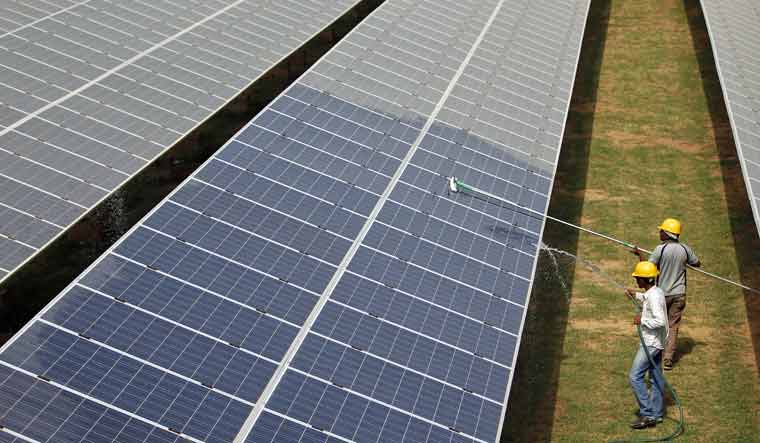(ATF) Republican Senator Marco Rubio and Democratic Senator Jeff Merkley sent a letter on Tuesday March 23 asking the Solar Energy Industries Association (SEIA) to detail measures it or member companies have taken to ensure that solar products sourced from Xinjiang, including polysilicon, are not made using forced labour.
“We are writing to inquire about the integrity of the US solar panel supply chain as it pertains to forced labour in the Xinjiang Uighur Autonomous Region (XUAR) of the People’s Republic of China (PRC). We understand that the US solar industry sources large amounts of polysilicon and solar products from this region, where the use of forced labour is state-sanctioned and systematic,” the two senators said in their letter.
“In 2017, PRC authorities aggressively expanded polysilicon production capacity in the XUAR through four PRC companies: Daqo New Energy, Xinte, East Hope, and GCL Poly. As a result, it is estimated that 50% of the world’s polysilicon production is now sourced from the XUAR. We also understand that Jinko Solar, a company that sits on the SEIA board of directors, owns and operates a solar ingot and wafer plant in the XUAR. In addition, Jinko Solar, JA Solar, and LONGi Solar – all SEIA members – have publicly indicated that they source polysilicon from the XUAR,” they said.
Polysilicon is the key raw material used to produce solar panels that generate electricity from sunlight.
In the letter, the senators said that reliance on a China-based supply chain “fails to protect consumers from inadvertently contributing to human rights abuses abroad.”
Dan Whitten, SEIA’s vice president of public affairs, said the group shared the senators’ concerns.
“We have called on American solar companies to completely leave the Xinjiang region by June and are working hard to develop a supply chain traceability protocol that can be used as a compliance tool to ensure the products they use are free of forced labour,” Whitten said.
Rubio and Merkley partnered earlier this year to reintroduce legislation that would ban all products from Xinjiang without specific approvals. While the legislation has had bipartisan support, congressional aides say it has been the target of lobbying opposition by firms with supply-chain links to Xinjiang.
UN experts and rights groups estimate over a million people, mainly Uighurs and other Muslim minorities, have been detained in China’s western Xinjiang region in recent years.
The US State Department has made a determination that Chinese officials are perpetrating genocide there. China denies all accusations of abuse.
Subsidies ‘undercut global competitors’
The US and other Western countries have also argued that China, the world’s biggest manufacturer of photovoltaic products, has undercut global solar companies with government subsidies for the Chinese industry.
The Trump administration imposed tariffs on imported solar panels, which many US solar firms thought was counterproductive by raising their costs as they compete to provide clean energy, and the SEIA has urged President Biden’s new trade representative Katherine Tai to review this position.
“Misguided solar tariffs have slowed America’s clean energy progress, and we have an opportunity to reverse this mistake and implement smart policies that will boost US manufacturing and create jobs in all sectors of the solar value chain,” Abigail Ross Hopper, president and CEO of the SEIA said in a statement last week when Tai was confirmed in her position.
“We look forward to working with US trade representative Tai to take full advantage of the opportunities the solar industry offers to America’s economic recovery.”
Rubio, who starts his Twitter description by saying he is “banned in and sanctioned by China”, can be expected to keep up his steady pressure to pass anti-Chinese laws and where possible to gather support for these measures from Democratic politicians, as well as fellow Republicans.
























